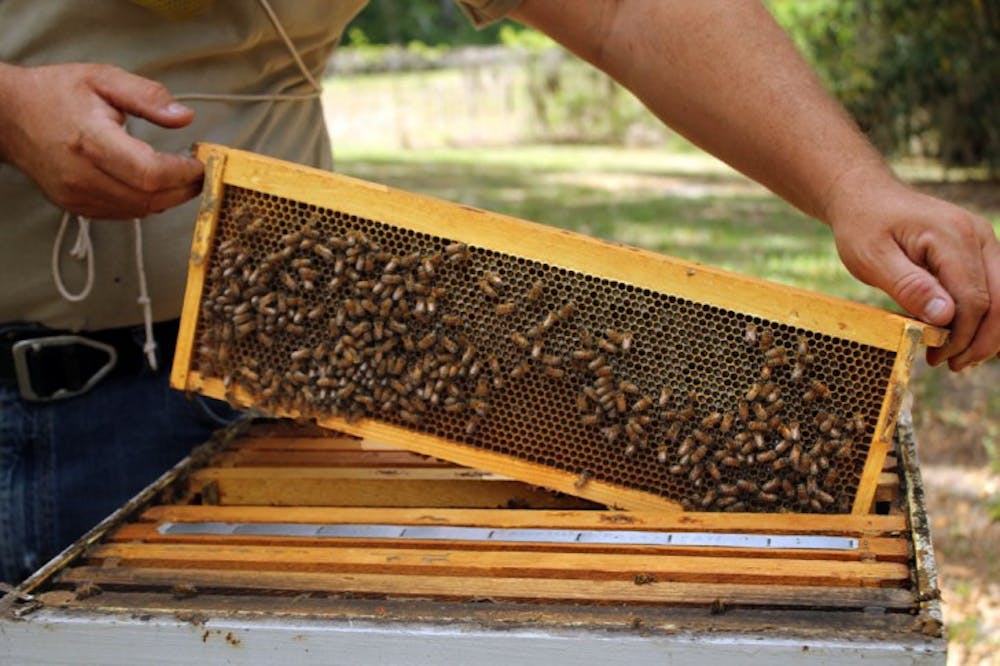The buzz about the decreasing honeybee population has motivated some Floridians to invest in a new hobby.
Each year, the nation’s population of honeybees declines by more than 30 percent.
Meanwhile, the number of Floridian beekeepers has nearly tripled in the past decade, with more than 2,700 people currently combating the buzzkill.
Researchers first documented a decline in honeybee health around 2005, said Daniel Schmehl, postdoctoral associate for UF’s Honey Bee Research and Extension Laboratory.
The problem is colony collapse disorder — the reduced population of adult bees in beehives.
Although the ultimate reason for the disorder is uncertain, researchers think pesticides, reduced nutrition, transportation and climate change are possible suspects, Schmehl said.
Some Floridians realized the threat to the state’s agriculture and environment and are choosing to do something about it.
“It’s a good thing that came out of a bad thing,” said Dennis Riggs, webmaster for the Florida State Beekeepers Association. “A lot of people became concerned when they started hearing warnings that bees were in trouble.”
Schmehl said the increase in beekeepers has more than doubled the number of Florida bee colonies from approximately 150,000 to about 400,000 in about eight years.
However, the increased number of Florida beekeepers and colonies does not ensure proper beekeeping handling and instruction, he said.
UF’s Entomology and Nematology Department offers a long-term training and certification program for registered beekeepers.
But for newbies, the department hosts the UF Bee College, a program for the general public that teaches individuals how to become better beekeepers.
“It’s focused on education — maintaining your bees, starting beekeeping — just acquiring those basic skills,” Schmehl said.
The program, which will be held March 7 - 8, offers more than 50 training, lecture and hands-on courses over a two-day period. It will take place at the Whitney Laboratory for Marine Bioscience in St. Augustine.
“We’re just making everyone aware of the goodness and importance of bees,” he said. “They realize it’s a doable hobby. It’s not something that’s impossible.”
[A version of this story ran on page 5 on 2/19/2014 under the headline "Floridians buzz about art of beekeeping as bee health declines"]






